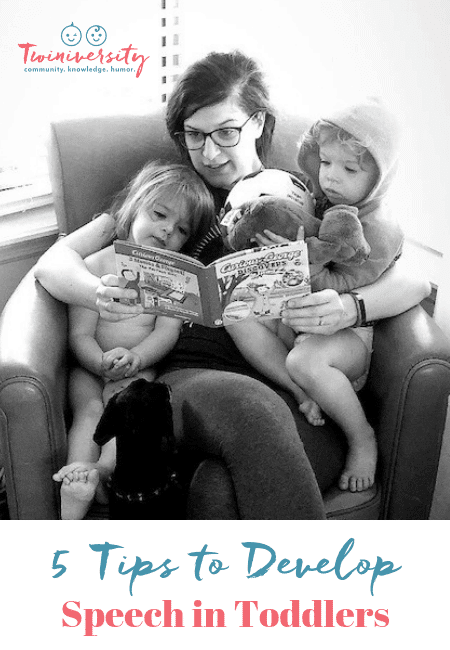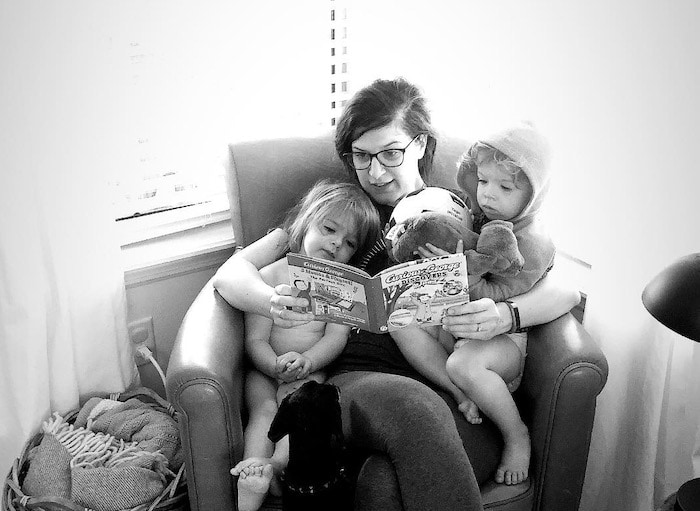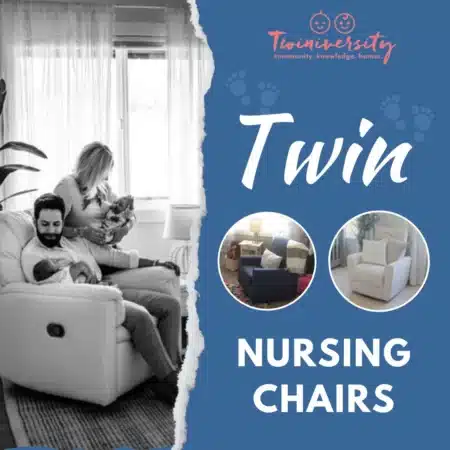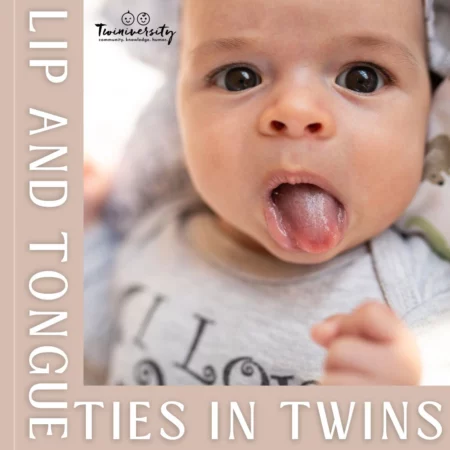Last updated on October 15th, 2023 at 02:06 pm
When my babies turned into toddlers, I couldn’t wait for them to start speaking in full-on sentences. Trying to decipher what they were saying was maddening at best. I’m here to assure you that the pterodactyl screams and the constant guessing game of what they want only lasts for a short period of time.
But one of our kids screamed a little bit more than the other, and we soon found out that we needed to add speech therapy to her early intervention treatment. It was a huge help and it empowered me to better work with her and ease her frustration.
Note, if you have any questions about your child’s development I would highly recommend talking to their pediatrician first. I’m just sharing some techniques that we learned from her speech therapist, but in no way should this be a substitute for a professional medical opinion.
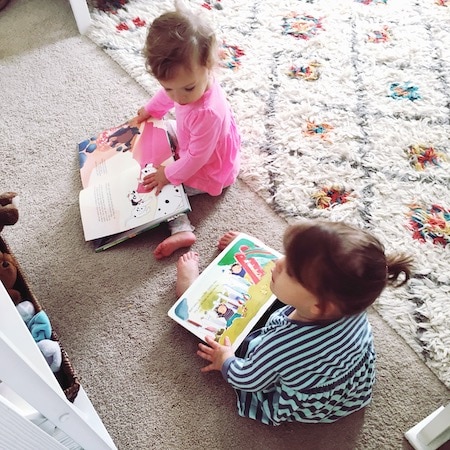
5 Tips to Develop Speech in Toddlers
1. Read, read, read (and ask questions!)
When our twins were newborns we began reading to them daily. Whether it was a children’s book, the newspaper, or Little Women, we tried to read as often as possible. But that was easier when they couldn’t move or voice an opinion. Toddlers can’t stand to sit still, much less listen to an entire story. So we found a couple stories they really liked and read them over and over and over again (Pete the Cat, anyone?)
The repetition built confidence and awareness for our little ones. We were also able to ask questions and have them identify things in the pictures, ask about colors, and encourage them to “read” the next page.

2. Encourage and praise
Our little one in speech therapy would get frustrated…all the time. As a result, any time she attempted to speak she was met with immediate praise — even if we couldn’t fully decipher what she was trying to say.
We also said “use your words” more often than not. By encouraging her to speak, she eventually overcame her frustration and slowly started to make a connection between what she wanted and how she communicated that. Eventually, she figured out that by trying to speak, it was easier to get what she wanted.

3. Whistle-blowing
Be forewarned, this is not pleasant on the eardrums; however, it is great when helping little ones annunciate and speak more clearly. Our twin’s speech therapist gave both of our children whistles so that they could learn to form their mouths better for consonants that were more difficult to say.
As you can imagine, one twin mastered this immediately and the other took longer. So I figured out that by putting my finger toward the end of the whistle, I could better coach her to softly blow into it and produce a sound. Now, we often hear them whistling in their bedroom. Oh, the joy.

4. Slow down and practice in the mirror with them
This was a big one for me. As a twin mom, I’m trying to communicate as quickly as possible, but that doesn’t mean my twins understand what I’m trying to say. Through the speech therapist, we learned that by slowing down and carefully pronouncing each syllable, it was easier for the twins to understand what we were saying.
Even more fun for them, you can look in a mirror together and slowly pronounce words so that they learn how to form their mouths and pronounce words. If you don’t have a mirror on hand, you can point to your mouth and have them watch you say each word. Make sure to get down to their eye level so they can get an up-close view of your mouth.
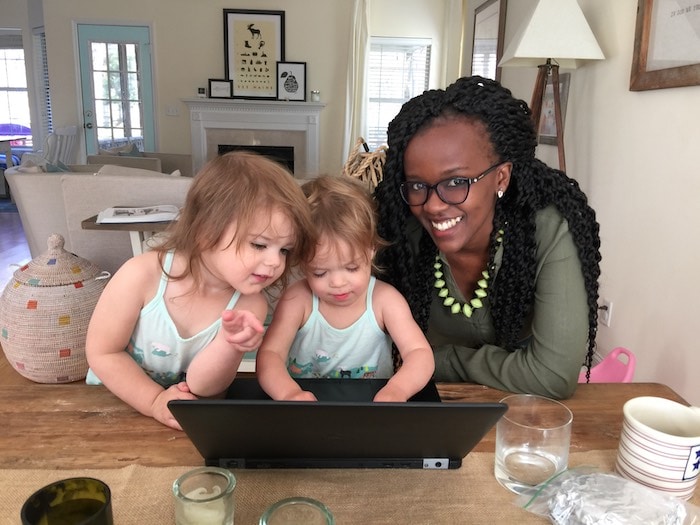
5. Repeat the phrase correctly
When our girls speak we immediately praise them and then repeat the phrase. For example, if they say, “want red truck!” (but in fact the truck was blue), we say, “Great job! I want the blue truck.”
By repeating the phrase correctly, they are being encouraged, but also learning the proper way to say something.
From personal experience, I have to say that early intervention and speech therapy works wonders. Our little one had services through early intervention for a year and a half and now she’s completely caught up and won’t stop talking. (As my sister-in-law warned me at the start of this journey, “Careful what you wish for!”)
I’m a firm believer that teachers, therapists, and anyone who works with little tots should be paid six-figure salaries because their patience, persistence, and knowledge are incredible. We are eternally grateful for the time our little one’s speech therapist gave us and can only imagine where we would be today if she didn’t walk alongside us on this journey.
All content on this Website, including medical opinion and any other health-related information, is for informational purposes only and should not be considered to be a specific diagnosis or treatment plan for any individual situation. Use of this site and the information contained herein does not create a doctor-patient relationship. Always seek the direct advice of your own doctor in connection with any questions or issues you may have regarding your own health or the health of others.
Related Articles
- How Speech Therapy Has Helped My Twins
- Reading To Your Twins: A Survival Guide
- Early Intervention: Deciding What Is Best For Your Twins
